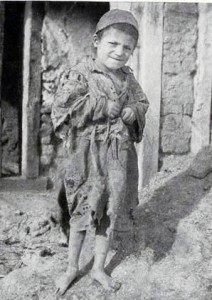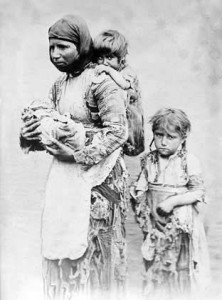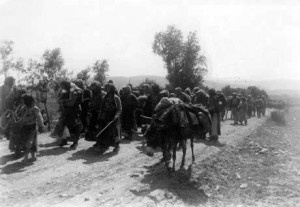Shared Sorrows: Indians and Armenians in the prison camps of Ras al-‘Ain, 1916-18 – 15
The fate of his Armenian friend Ilyas weighed heavily on Sisir Sarbadhikari. Later in his memoir he writes: ‘I still think of [Ilyas]. A boy of fourteen or fifteen; a really good fellow. Did he manage to get back to Erzurum in the end? Or did he die on the way? What happened to his mother and sister? It’s not that these questions arise only in relation to Ilyas, thousands of Armenian families are dealing with this.’ (p.189)[i]

In early October, the situation in the camps suddenly changed. Sisir was told that the hospital was to be shut down at once and all the patients were to be discharged.
This had a dramatic impact on the mohajers.

‘The Armenian women began to weep,’ writes Sisir. ‘For so long they had been sheltered by the Germans – it was like being in the shelter of a mountain; the Turks couldn’t do anything to them. Now they were afraid that as soon as the Germans left they would be slaughtered; this time even the women wouldn’t be spared.
‘Every day Yakob would come to us, lamenting and crying; he would say that he was trapped while Ilyas had got away in time (but did he get home? Poor Ilyas!) [But] we didn’t worry so much about Yakob, he was a clever fellow, tricky one might even say. (p.190)
Within a few weeks, things came to a head. ‘Everything’s in an uproar!’ writes Sisir. ‘[Only] the Turkish soldiers seem to be indifferent; secretly they must be glad it’s over. When the fighting’s over they’ll heave a sigh of relief. It’s the Germans who are the most fearful; they’re worried that they’ll get stuck in Turkey and fall prisoner to the British. But the greatest terror is amongst the poor Armenians. Old Mary, Dudu, Haiganoush, Jarohi all of them are crying out loud, asking: what will happen to us now? Amongst them Dudu speaks some English. She has a boy of six or seven, and to please the Germans she had named him William. She’s a clever woman, with an eye to the main chance. Now maybe she will change the name.’

‘Most of [the mohajers] are from Diyarbakir, Urfa, Siwas, Kaisariya, Maras, and Aindhab or Mardin. Later they had begun to come from Van and Bitlis.’ (p.191)
[i] It isn’t clear whether Sisir wrote this episode from memory or had notes to rely on. Chronologically, the episode occurred after the resumption of his journal. But in the book he tells the story out of chronological sequence.
